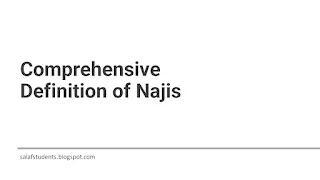Books of Hadith: Download and Read Online
Hadith, or al-Sunnah, serves as the second source of Islamic law after the Quran, holding significant importance as a primary Islamic source. It's essential to note that the authority of a hadith, almost equivalent to the Quran, lies in its authenticity (sahih) or goodness (hasan), excluding weak (daif) or fabricated (maudhuk) ones.
The following books, accessible through links, can be downloaded for storage or read online. Generally available in PDF format, these hadith books result from scanning printed versions, maintaining page numbering consistency.
Six Hadith Books (Al-Kutub Al-Sittah):
- Sahih al-Bukhari by Al-Bukhari (194-256 H; 810-870 M). One volume.
- Sahih Muslim by Muslim bin Al-Hajjaj (206-261 H; 822-875 M). Two volumes.
- Sunan Abu Dawud by Abu Dawud (202-275 H; 817-889 M). Six volumes.
- Sunan al-Tirmidzi by At-Tirmidzi (209-279 H; 824-892 M). Six volumes.
- Sunan al-Nasai by An-Nasai (215-303 H; 829-915 M). Twelve volumes.
- Sunan Ibn Majah by Ibn Majah (209-273 H; 824-886 M). Two volumes.
Nine Hadith Books (Al-Kutub Al-Tis'ah):
- Sahih al-Bukhari by Al-Bukhari (194-256 H; 810-870 M). One volume.
- Sahih Muslim by Muslim bin Al-Hajjaj (206-261 H; 822-875 M). Two volumes.
- Sunan Abu Dawud by Abu Dawud (202-275 H; 817-889 M). Six volumes.
- Sunan al-Tirmidzi by At-Tirmidzi (209-279 H; 824-892 M). Six volumes.
- Sunan al-Nasai by An-Nasai (215-303 H; 829-915 M). Twelve volumes.
- Sunan Ibn Majah by Ibn Majah (209-273 H; 824-886 M). Two volumes.
- Musnad Ahmad by Ahmad bin Hanbal (164-241 H; 780-855 M). Twenty volumes.
- Muwatta Malik by Imam Malik (93-179 H; 711-795 M). Two volumes.
- Sunan Ad-Darimi by Ad-Darimi (181-255 H; 797-869 M). Four volumes.
Non-Nine Book Hadiths:
Apart from the aforementioned books, there are additional hadith collections, including:- Mushannaf Abdir Rozzaq by Abdur Razzaq (w. 211 H). Nine volumes.
- Mushannaf Ibn Abi Syaibah by Ibn Abi Syaibah (w. 235 H). Fifteen volumes.
- Sahih Ibnu Hibban by Ibnu Hibban (w. 254 H).
- Musnad Al-Bazzar by Al-Bazzar (w. 292 H). Eighteen volumes.
- Sahih Ibni Khuzaimah by Ibnu Khuzaimah (w. 311 H). Two volumes.
- Musnad or Mustakhraj Abi Awanah by Abu Awwanah (w. 316 H). Five volumes.
- Al-Mustadrak by Al-Hakim (w. 405 H). Five volumes.
- Sunan al-Baihaqi al-Kubra by Al-Baihaqi (w. 458 H). Eleven volumes.
- Majmauz Zawaid wa Manbaul Fawaid by Nuruddin Al-Haitsami (w. 735 H). Twelve volumes.
- Al-Matalib Al-Aliyah bi Zawaid Al-Masanid Al-Tsamaniyah by Ibnu Hajar Al-Asqalani (w. 852 H). Nineteen volumes.
Popular Terms for Hadith Narrators:
At the end of a hadith, the number of narrators is sometimes mentioned. The most famous is "muttafaq alaih." Other terms include "al-tsalatsah" (the three), "al-arba’ah" (the four), "al-khamsah" (the five), "al-sittah" (the six), and "al-sab’ah" (the seven). Notable scholars associated with these terms are listed according to Ibnu Hajar Al-Asqalani's criteria:
- Muttafaq alaih: Bukhari and Muslim.
- Ats-Tsalatsah: Abu Dawud, Tirmidzi, Nasai.
- Al-Arba’ah: Abu Dawud, Tirmidzi, Nasai, Ibnu Majah.
- Al-Khamsah: Ahmad, Abu Dawud, Tirmidzi, Nasai, Ibnu Majah.
- As-Sittah: Bukhari, Muslim, Abu Dawud, Tirmidzi, Nasai, Ibnu Majah.
- As-Sab’ah: Ahmad, Bukhari, Muslim, Abu Dawud, Tirmidzi, Nasai, Ibnu Majah.





